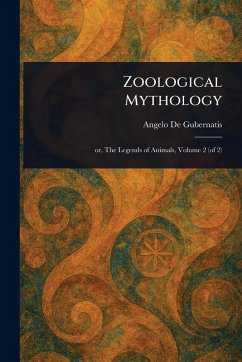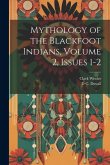Delve into the fascinating world of "Zoological Mythology (Volume II), or The Legends of Animals," by Angelo de Gubernatis. This meticulously prepared republication explores the rich tapestry of animal legends woven into the fabric of folklore and mythology. Discover the enduring power of mythical animals and their symbolic significance across cultures. De Gubernatis examines a diverse array of creatures, unraveling their connections to ancient beliefs and traditions. This volume offers a valuable exploration of animal legends, providing insights into comparative mythology and the social sciences. Ideal for those captivated by the intersection of religion, nature, and social science, "Zoological Mythology" offers a journey into the captivating realm of animal myths. A timeless resource for understanding the cultural significance of animals throughout history. Volume II of II. This work has been selected by scholars as being culturally important, and is part of the knowledge base of civilization as we know it. This work is in the public domain in the United States of America, and possibly other nations. Within the United States, you may freely copy and distribute this work, as no entity (individual or corporate) has a copyright on the body of the work. Scholars believe, and we concur, that this work is important enough to be preserved, reproduced, and made generally available to the public. We appreciate your support of the preservation process, and thank you for being an important part of keeping this knowledge alive and relevant.
Bitte wählen Sie Ihr Anliegen aus.
Rechnungen
Retourenschein anfordern
Bestellstatus
Storno









